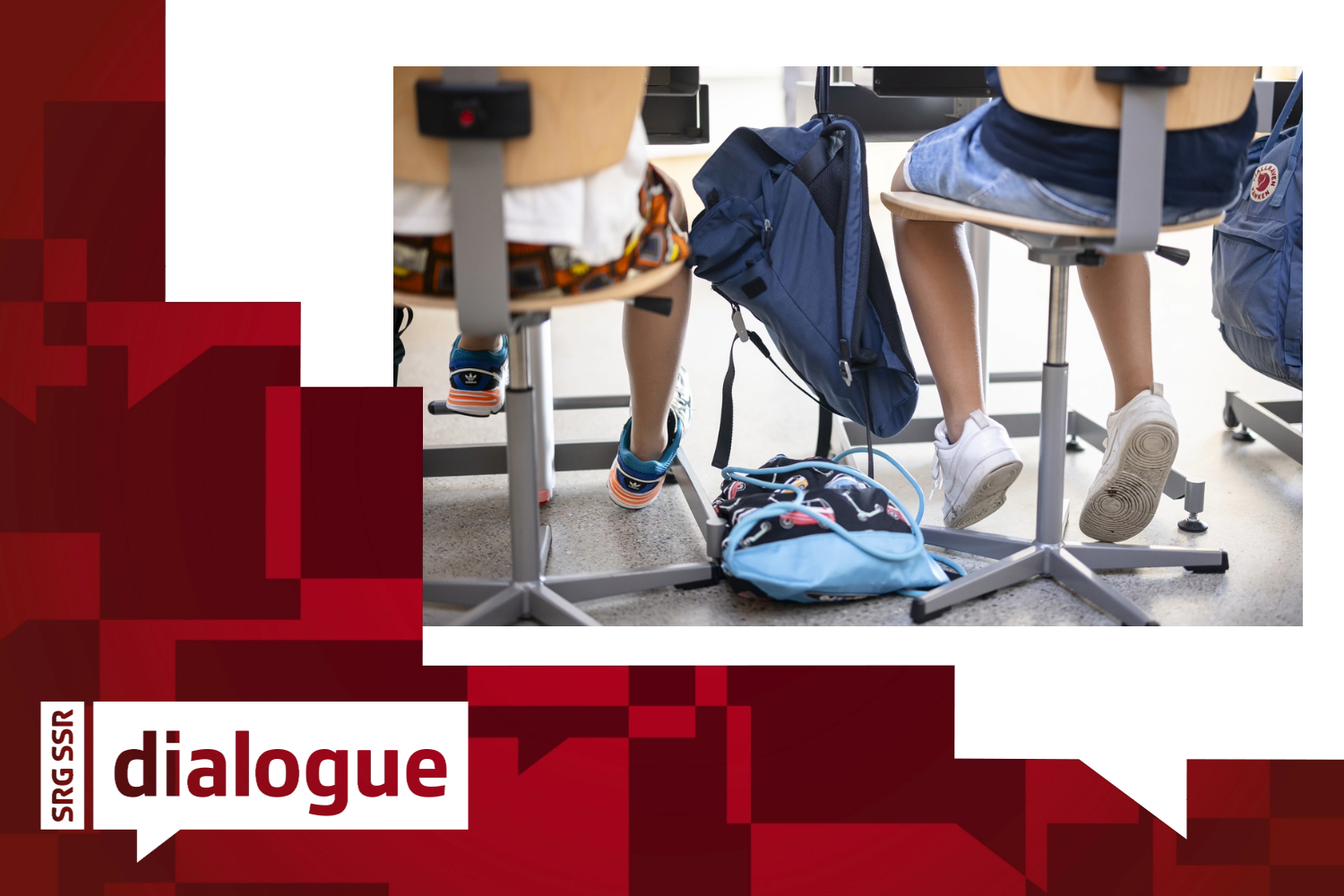
Swiss satisfied with their school system

A clear majority of Swiss are satisfied with the country's education system, according to a representative survey. This was not always the case in the past, when there was a significant amount of criticism directed towards schools and teachers.
If the Swiss education system were to receive a report card, it would be quite pleased. Three-quarters of the population in Switzerland award it “good” to “very good” grades, according to a survey of over 57,000 people by research institute gfs.bern, commissioned by the Swiss Broadcasting Corporation (SBC).
Dagmar Rösler, president of the Swiss Teachers’ Association LCH, is pleased with the results. “This is surprising and shows that we have the support of the population,” she says.
Approval is somewhat higher in French-speaking Switzerland and Italian-speaking canton Ticino, at 82% and 79% respectively, than in German-speaking parts of the country, where it is 72%. It is comparatively lowest in Romansh-speaking Switzerland, at 69%.
Find out how you compare to the respondents:
Praise and criticism
The respondents hold the dual education system in high regard, that is, the system which offers teens a choice between a general education and vocational training. Additionally, the opportunities for lifelong learning and the work done by teachers are positively assessed.
A majority of respondents do not, however, believe that the approach towards pupils with learning difficulties is adequate. Specifically, 40% believe that such children should receive better support. According to child and adolescent psychologist Andrea Lanfranchi, action here is already being taken.
Lanfranchi, an expert in education issues, says he finds the number of parallel support offers problematic. “Teachers prefer a single specialist for support. Too many cooks spoil the broth.” In his view, pre-school support programmes would be particularly crucial in order to enhance starting opportunities in school and prevent later learning difficulties. However, it is not a solution to teach all pupils with learning difficulties separately. “This stigmatises them, which concerns me,” he says.
Further articles on the topic from the other language regions:
Measures against bullying not enough
Other points of criticism are that classes should better prepare young people for life. In addition, schools should do more against bullying and teach discipline, according to a majority of survey respondents.
Schools should indeed take a close look at the issue of bullying and take action, agrees Rösler. “However, we have to differentiate. A conflict between two children is not yet bullying,” she says.
“Constructive criticism of schools is allowed and necessary to improve,” says Rösler, adding that a majority of parents are well-disposed towards schools in general. “These are our so-called ‘critical friends’ who expect a lot from us and rightly so,” she says.
The results of the survey “How’s it going, Switzerland?” are based on 57,778 interviews conducted by the research institute gfs.bern in April and May 2023 on behalf of the SBC. Some 2983 people were selected from an online panel of gfs.bern, creating a representative image of the Swiss population (members were 16 years old and older). The sample was stratified in four languages along the language regions and quoted by age and gender.
A total of 54,795 individuals completed the questionnaire online. The questionnaire was distributed by all SBC units and participation was not obligatory. This method of survey alone is not representative. The results were obtained using specific methods of data weighting and data validation.
The questionnaire comprised more than 300 questions. To ensure that an interview did not exceed approximately 20 minutes, gfs.bern did not ask the same questions to all respondents. Consequently, the sampling error varies depending on the question and the number of responses. With a total of 57,778 interviewees, the sampling error is 0.4%. However, with 6,000 respondents, it increases to 1.27%, and with 3,000 respondents, it further rises to 1.79%.
What do you think? Do Swiss schools prepare children for their lives? Our editorial team uses AI to translate both the articles and the multilingual debate into the four national languages and English. Therefore, you can join the discussion using your national language or English and debate with people from all over Switzerland as well as with Swiss living abroad.
Join the discussion:
What is “dialogue”?
The new editorial offering aims to promote dialogue between the different regions of the country and the Swiss Abroad without language barriers.
Translated from German by Isabelle Bannerman
Isabelle Bannerman

In compliance with the JTI standards
More: SWI swissinfo.ch certified by the Journalism Trust Initiative


























You can find an overview of ongoing debates with our journalists here . Please join us!
If you want to start a conversation about a topic raised in this article or want to report factual errors, email us at english@swissinfo.ch.